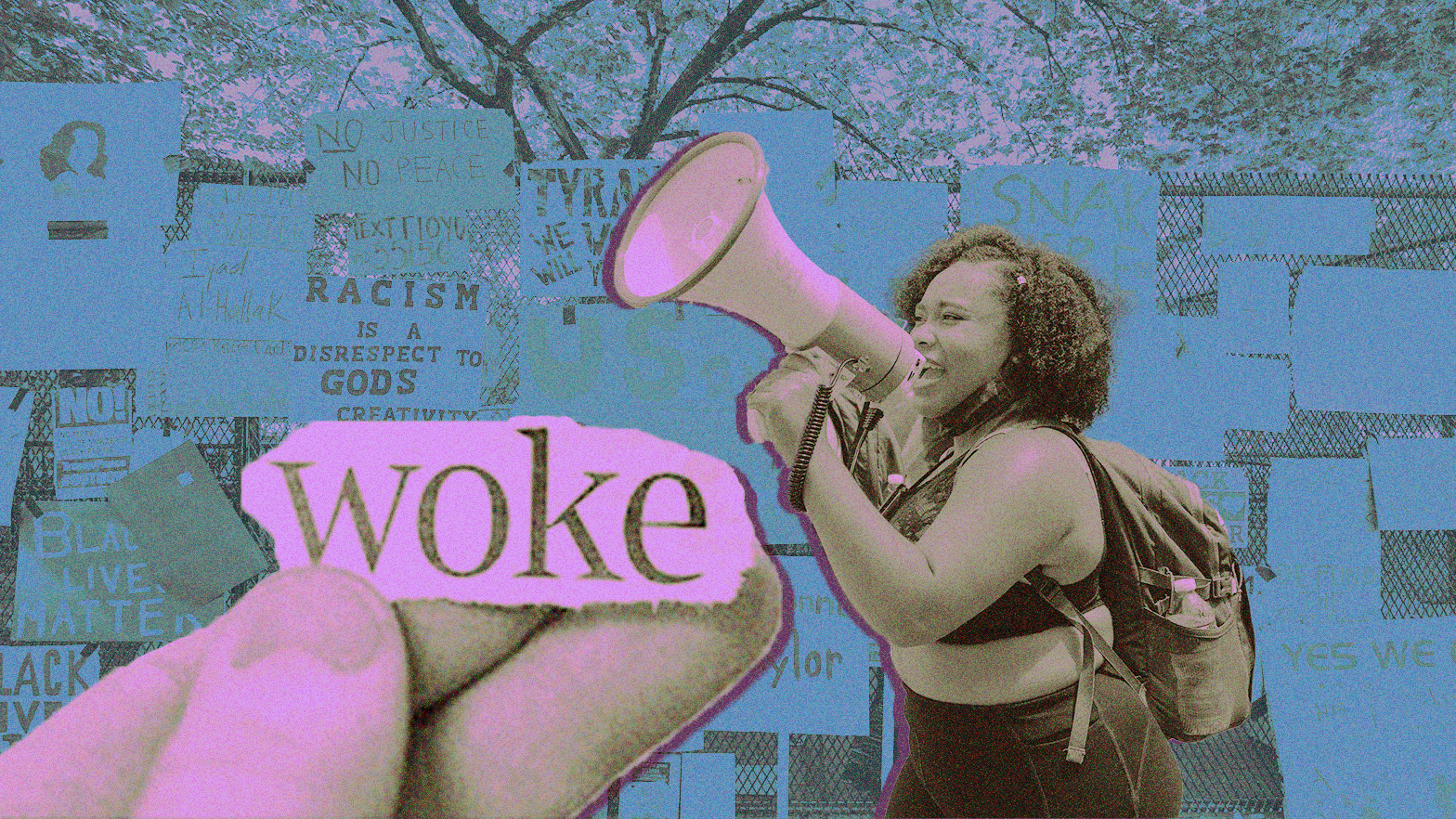In a collapsing age, humor and spirit alone won’t do us justice.
Libertarianism: A Feel-Good Suicide Pact

If you want to know why libertarianism recedes further into irrelevance by the day, look no further than David Gordon’s attempt to wrestle down the ideas of “Bronze Age Pervert” (a/k/a “BAP”), whose self-published book I reviewed in the Summer 2019 Claremont Review of Books.
Gordon’s purported target is BAP himself but he spends far more time attacking me. And he gets nearly everything wrong. It’s almost as if he is not trying—to read, to understand, to debate, to engage, or anything else. Instead he apparently just wants to settle old scores with my teacher, the late Harry V. Jaffa, who was (rhetorically) ruthless in exposing the blinkered absurdities, unrealities, and inconsistencies of libertarianism. Having been on the receiving end of Jaffa’s critiques myself, I can say that I feel for Gordon. But that doesn’t excuse this mess of a piece.
There is nothing objectionable in Gordon’s first two paragraphs (of nine) simply because they largely consist of quoting me. Since the quotes are accurate, I can’t complain. But as soon as Gordon starts speaking for himself, he goes off the rails.
Compound Errors
“How does Anton propose to appeal to youth in a better way than the author of the Bronze Age Mindset?” he asks, apparently not noticing that I haven’t proposed any such thing. I’m well aware of my limitations as a potential pied piper for the disaffected youth to whom BAP appeals. My goal was—and is—less to steal his audience than to understand it. The rest of this paragraph, also being a lengthy quote from me, is also unobjectionable. But Gordon’s attempt to answer, in my voice, a question that he raises but I do not is—to borrow from him—“far from satisfactory.”
Gordon’s fourth paragraph is a simplified account of Jaffa’s teaching, with at least one notable error. “Jaffa,” he writes “teaches rule by wise philosophers like himself, but that is another story.” A story Gordon made up. I have read everything Jaffa ever wrote, most of it more than once, and spent three years talking to him nearly every week (and during the school year almost every day) and I never heard him say anything remotely like this. When he said—and he said it often—that “no one was naturally the ruler of another”—he meant it. He might have been wrong about that, but to make progress in discovering whether or not he was would require a philosophic investigation, something Gordon doesn’t even hint at nor seem interested in.
In Gordon’s fifth and sixth paragraphs, the simplifications devolve into caricature. He apparently believes it is enough to ridicule certain ideas: knowing readers will get the joke and laugh along; the unhip aren’t worth trying to persuade.
Gordon mentions the view that Calhoun believed in “group rights” (sneer quotes his) without passing any sort of judgment. Does Gordon think this assertion is false, that Calhoun did not believe in group rights (or to use fancier language, “concurrent majoritarianism”)? Or does he accept that Calhoun did so believe, and also himself believe that group rights are true and good? The implication from Gordon’s laughter at the notion that group rights could possibly pose theoretical or practical problems is that he must believe one or the other. Knowing what I know about libertarians and their interpretation of 19th century American sectionalism, I suspect that Gordon means to insinuate the latter. Well, why not just say so? I realize that in increasingly woke America, wearing one’s Confederate partisanship on one’s sleeve is more dangerous than it used to be, but there are ways around that. Gordon could simply point to the “concurrent majority” politics championed by minority parties in Europe and trust that his knowing readers will get the hint.
Gordon’s leap from Calhoun to the Nazis is tenuous and crude but since he clearly means to impute that to others (i.e., me) he charges ahead with relish. I suppose there is a link: Hitler, after all, lamented the Confederacy’s loss and slavery’s end, but what that has to do with anything allegedly under consideration here I cannot say.
Gordon then refers to his fourth through sixth paragraphs not merely as an “account” but as my “account.” Of what? That’s not clear either, but he appears to mean my alleged attempt to appeal to the disaffected youth whom, in my BAP review, I say are no longer attracted to conventional conservatism. The problem with Gordon’s “account” of my ideas is that I nowhere say what he attributes to me. Not that I disbelieve all of it. But were I setting down in my own words what I really believe on these subjects, I would have been much clearer and more precise.
Gordon points to my little book After the Flight 93 Election but doesn’t appear to have read it. He thrice refers to my “care” and “skill” as a reader, compliments obviously intended to be backhanded, but he would do well to take a little more care in reading himself. After the Flight 93 Election mentions the Civil War and World War II once each, in passing, with no attempt at analysis or evaluation. It cites neither Jaffa nor Jefferson nor Eisenhower—all figures said to be central to my “account.” Churchill is mentioned once, as the type of magnanimous statesman I personally prefer, but not to make any point about the war or anything else.
After the Flight 93 Election is, in fact, not a history book at all—except insofar as it offers a philosophic history of how leftism came to take over American intellectual and political life. I do discuss Calhoun, whom I consider the greatest spokesman for the first of what I call three distinctly American attacks on what I term “the American solution”—that is, the American Founders’ solution to political problems that have bedeviled mankind since the Fall. I do indeed attribute the idea of “group rights” to Calhoun’s defense of “states’ rights”—or to be more specific, to his assertion that certain minority groups should have the power to overturn majority will even when it has been exercised lawfully and constitutionally and contravenes no minority rights. I then argue that Calhoun’s position has, in an ironic twist, been taken up by the leftists of our time, many of whom (to say the least) Calhoun would not have invited in for tea.
As noted, if Gordon thinks this was not Calhoun’s position, he should say so. If he thinks it was, but that Calhoun was right and I am wrong, he should say why. If he sees no connection between Calhounian group rights and our modern counterpart, he should explain how they are so different. If that is in fact what he belives, I would further ask him to explain why the Calhounian version can save us in 2019, and how it can be victorious over its woke competition.
Rights and Wrongs
Gordon says nothing about the other two strands of leftism that I analyze, nor anything about my analysis of how the three strands came together to form the leftism under which we now live. It seems to me far more urgent to understand that and start thinking about how to defeat or escape it than to settle old scores with the dead, but we apparently have different priorities.
Gordon’s article—quite silly up to this point—then manages to do what I would have thought was impossible: get dumber. He says that I offer to the youth “a powerful central state that destroys the rights of states and local communities, doing so in merciless wars like the Civil War and World War II.” Silly me, I had been unaware that World War II destroyed any communities here at home. That must be what he means, right?
In any event, this is not the place to refight either war, so I will leave it at the fact that if I could go back in time to when the federal government’s power, size and scope were limited to the parameters of (say) 1870 or 1950, I would be tempted (with a few notable exceptions)—and I bet Gordon would as well. “War is the health of state,” but what Gordon seems to deny, or not know, is that the American state used to recede back toward, if not always fully “to,” its prewar size and scope once victory had been won. It doesn’t any more in part because of the stranglehold of the leftism that my book describes.
All of this is moot, though, because I nowhere praise a “powerful central state” and I quite explicitly decry overweening state power that destroys local communities. Though I may say for the record that I don’t believe in the concept of “states’ rights,” not because I don’t sympathize with state governments being bullied by the feds—I do—but because the concept is inherently nonsensical. If a “right”—an inherently abstract thing if ever there was one—may be said to exist, the only coherent way its existence can be logically demonstrated is if one accepts that only human beings have rights. Other beings—whether animal, vegetable, mineral or conceptual—do not and cannot. I explain why in my book. I learned this argument from the early modern political philosophers and the American founders via Jaffa and others. I’ve never seen an even remotely convincing alternative conception of “rights” that are not the unique possession of man as a reasoning being subject to the moral law, created in God’s image. I doubt Gordon can offer such an alternative, but if he does, I promise to read it.
I find it frustrating, but amusing, to see confirmed once again a great libertarian blind spot. The only way their conception of a just politics—maximum individual freedom, minimum state power—makes sense at all is if you assume that individual human rights are real. Yet libertarians often attack the idea of individual rights as an engine of state power even as they stridently advocate for investing rights in states! I have never quite grasped why ideologues hostile to state power wish to grant rights to their great boogey-man. Nor will it do to say “we are for states’ rights, not federal rights.” What justifies the distinction—the limiting principle—in either theory or practice? Once one asserts that government qua government can have “rights,” by what argument or means can one stop the federal government—which is so much more powerful than all the states put together—from claiming that it, too, has rights? True, the federal behemoth does not formally so claim. But it acts like it does, and has for a long time.
A better, truer conception—both theoretically and practically—is to accept that only human beings have rights; no government—state, local, federal or central—ever can, or ever has. The purpose of government is to act to secure our individual natural rights, and a properly limited government will also be prevented from acting in contravention of our rights. That is not, admittedly, the government that we have today but it is the government we used to have and that I would like to have again. So this business about me advocating “a powerful central state” is just so much nonsense.
Let me further say before leaving this topic that Gordon can get one of the things he wants, and that I also want—greater latitude for state governments vis-à-vis the all-powerful feds—only through a return to the conception of rights that I have sketched. For the rights that he (and I) wish to vindicate from federal intrusion are fundamentally individual rights, the rights of the people of the several states, not the alleged “rights” of the states themselves—which, again, do not even exist.
Gordon further says that I find “some value in federalism, but it must be strictly subordinate to the central government’s efforts to enforce equality.” The accuracy of this depends on what Gordon means. Does he mean that I favor a federal government strong enough to do its job, to carry out its enumerated powers? Guilty. Or does he mean that I want a federal government that acts as a national, intrusive busybody, imposing one newly-discovered “right” after another on a beleaguered people without their consent? That’s the government we have now, and I’m agin’ it.
I suppose it all comes down to the meaning of “equality” in that sentence. Should state power be used to redress actual violations of citizens’ equal natural rights? Yes. Of course. That’s what the state—any state—is for. Should state power be used to impose “equality” for the purpose of correcting all past and present, real and alleged, “injustice”? No. These two conceptions are separated by a vast gulf and the former does not inherently lead to the latter. It has in our case, to be sure, but it didn’t have to. And, again, I explain (or try to) how that happened in my book.
Weak State, False Promises
Gordon goes on to say that in my “account,” “religion is allotted its place, but it is subject to suppression if clergy dare to contradict the ‘civil religion’ of equality that everyone must profess.” I can’t even guess which of my words he twisted to arrive at this travesty, nor can I discern what it’s supposed to mean, so let’s just keep going.
“Is this what young people want? Surely they want to be left alone so that they can raise their families in peace. Surely they wish to practice their own religion without supervision by the state.” Surely some of them do. And for those who want these things, I want them for them. But, first, Gordon has not reckoned with the extent (it is not small) to which swaths of the youth have simply given up any hope of ever having a family. Second, he seems to vastly overestimate the residual religiosity of the young.
But even if this were not the case, it’s laughable to think that libertarianism has anything to offer these disaffected youth. What tenets of libertarianism are actually conducive to family formation? Outsourcing, free trade and high immigration that kills jobs, decimates industries and pounds down wages? Endless deference to wealth concentration and corporate power? As long as it’s not the government! Legal weed, gambling and prostitution to while away a life full of pointlessness and ennui? And what does libertarianism have to offer the genuinely religious, who actually care about moral virtue and don’t believe that consent alone grants moral legitimacy to every vice?
Similarly, why is a “weak state” that does little or nothing for anyone better for these disaffected youth than a strong state that actually does its job? You know, like enforce the border, attack drug cartels, redress trade imbalances, and encourage domestic investment and manufacturing, among other things? All anathema to libertarians, I understand, but it’s bit rich for Gordon to turn around and praise “hearth and home” when his ideology opposes any and all measures that might strengthen either and openly advocates for mass anesthetization.
Gordon upbraids me for not supporting “a consistent policy of nonintervention.” Of course I don’t; only a fool would. For such “consistency” is not possible in foreign affairs, which are by their very nature fluid. Interests are consistent over time (though not forever) but the policies that serve those interests must vary with circumstances. Sometimes intervention is necessary and beneficial, as it was in 1991. Other times it is foolish and harmful, as it was in 2003. As a general matter, I think the United States has been too interventionist for too long, with too little gained and far too much lost. The necessary corrective is for our foreign policy to swing back toward non-, or less, intervention. But that doesn’t mean no intervention, ever. Events must be taken as they come, as they are, on a case-by-case basis. We cannot rule out the potential necessity of intervention because we don’t know what the future holds. “A consistent policy of nonintervention” is childish and would, sooner or later, be upended by what Solzhenitsyn called “the pitiless crowbar of events.”
Gordon asserts that I have “an essentially rhetorical conception of philosophy.” I don’t know what this means. If it is supposed to mean that, like the sophists, I believe that words always, and deeds never, move the world, then he is wrong. If it means something else, he should explain. He further says that I lack “skill in philosophical argument.” Perhaps. But I remind him that the very first sentence of the new essay in my little book reads: “What follows is not a philosophical treatise; it is a political argument.” Once again, a little more care in reading would have served Gordon well. I shall leave to others to judge how convincing my political argument is; Gordon evidently found it wanting. But I also note that I cannot judge his own “skill in philosophical argument” because he didn’t make any.
A Terminal Ideology
Gordon closes by saying that neither I nor BAP “can effectively appeal to those fed up with the Leviathan State.” Once again, I will leave to others to judge the appeal of my work. I will also let BAP speak for himself—he has promised on Twitter to reply to my review and I eagerly await that response. I will say this, however, purely as a factual matter: Gordon is wrong that BAP has found no appeal with those opposed to the Leviathan. He absolutely has. The purpose of my review was to inform conservatives of this phenomenon and try to begin to explain what it means.
But even if Gordon were right that BAP held no appeal to those fed up with Leviathan, he commits an own-goal by including the qualifier “effectively” in that charge. For, far more certain than anything else I’ve alleged in this response is the fact that libertarianism offers no “effective” response to anything—not to the Leviathan or anything else. Libertarianism in fact the most singularly ineffective movement of the last 50 years, ineffective at everything it tries to do: win arguments, win votes, win elections, make policy, govern, appeal to a share of the population beyond the low single digits. It’s nothing more than an ideology in the strict sense, which is to say, a simplified, degraded, popularized shadow of philosophy, impractical, utopian, obsessed with purity of doctrine and blind to the complexities and realties of the world.
The Leviathan is a real problem—arguably the problem of our time. BAP and I, each in our own ways—often in disagreement with and opposition to one another—are exploring potential solutions to the problem. One thing on which I am confident we both agree: libertarianism offers nothing beyond the “principled” self-satisfaction of “knowing” that one is “consistent” and right. It must be an enjoyable feeling, and I will leave David Gordon to enjoy it.
The American Mind presents a range of perspectives. Views are writers’ own and do not necessarily represent those of The Claremont Institute.
The American Mind is a publication of the Claremont Institute, a non-profit 501(c)(3) organization, dedicated to restoring the principles of the American Founding to their rightful, preeminent authority in our national life. Interested in supporting our work? Gifts to the Claremont Institute are tax-deductible.
The cure for what ails America.
In defense of sex-segregated times and places.
The pursuit of woke social justice is anathema to America’s flourishing.
All Americans of good will and common sense must oppose the spread of this pernicious ideology.
Yale is caught between what it should practice and what it must preach.






